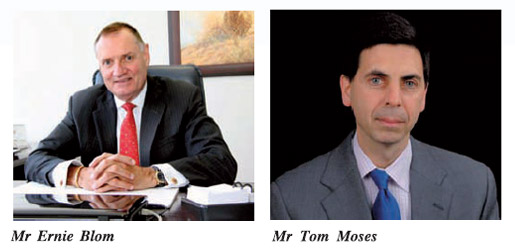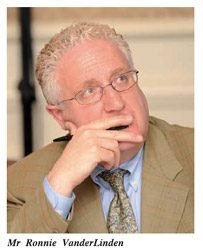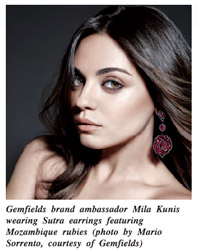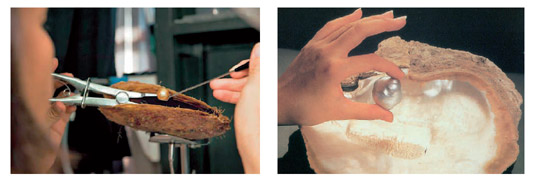|
|
Silver
Survey Optimistic |
|
| |
 |
|
| |
Silver prices in
the first 10 months of 2013 have averages $24.51 per ounce,
nearly a 21 percent year-on-year decline, according to the Thomson
Reuters GFMS Interim Silver Market Review, and GFMS is forecasting
a full year average price even lower at $24.24 per ounce. GFMS
noted that silver's characteristics sometimes shadow the development
impacting gold and it also takes cues from the industrial world,
both trends which are expected to continue in 2014, Gold has
lost about 25 percent year on year and trading at $1.288.50
per ounce on November 15. |
|
| |
|
|
| |
The interim report
from Thomson Reuters GFMS concluded that silver fabrication
demand will grow 6 percent year on year both for the jewellery
sector and the silverware market this year. Jewellery demand
has been particularly strong in emerging countries, with demand
surging in India as
consumers have dramatically pulled away from buying gold.
GFMS explained that much
of silver's price decline this year was driven by factors similarly
influencing the gold market and triggered by expectations that
the U.S. Federal Reserve would taper backits $85 billion monthly
bond and mortgage backed securities purchases.This alongside
an expectation of more attractive return in order asset classes,
prompted investors to engage in sector rotation trades away
from safe haven coomodities toawrd equities and bonds, the report
noted. |
|
| |
|
|
| |
By comparison, GFMS
Started that gold exchange-traded fund (ETF) outflows have been
in place all year, but silver ETF holdings continued to grow,
reaching a record-high of 655 milllion ounces on October 31.
Silver mind production is poised to grow by 4 percent this year
to 815 milllion ounce, with grownth in production primarity
coming from growth in production primarily coming from the U.S.
Mexico and the Dominican REpublic. GFMS estimates the average
cash for mining silver is $9.50 per ounce, up from $8.90 per
ounce in 2012. GFMS also forecasts 35 million ounces of net
producer de-hedging in 2013 as companies allowed contracts to
mature or actively bought hedges back. |
|
| |
|
|
| |
|
|
| |
|
|
| |
IDA
to Get Synthetic Diamonds Device
|
|
| |
GIA President Susan
Jacques, and her deputy, Tom Moses, will present the Israel
Diamond Exchange (IDE) with its state-of-the-art-device for
the identification of synthetic diamonds during a visit in early
February.
The GIA says
the machine has a synthetic diamonds identification accuracy
rate of 97 percent, while the remaining 3 percent of suspect
stones are classified by the device as "not clear"
and should be sent to the laboratory for a more comprehensive
inspection.
The Israel
Diamond Exchange will be the first bourse in the world to recieved
the machine.
|
|
| |
 Ernie
Blom, President of the WFDB, and the Tom Moses, GIA execultive
vice president and chief laboratory and research officer,
announced that an agreement has been made between these two
world bodies. GIA (Gemological Institute of America) will
provide a machine to assist with the detection of synthetic
diamonds to member bourses.
The WFDB is committed to enforcing
its stand of "zero tolerence" in the non-disclosure
of synthetic stones. The assitance offered by GIA with making
these machines available to member bourses will be of great
assistance in the detection of illegal mixing of synthetic
and natural diamonds.
|
|
| |
|
|
| |
|
|
| |
Concern
Over Synthetic Diamonds |
|
| |
A
range of dimaond and jewelry industry organizations will take
part in a meeting organized by the Diamond Manufacturers &
Importers Assocation of America (DMIA) following and urgent
call by the body last month to host an industry-wide meeting
in New York City about measures to prevent synthetic diamonds
being presented as natural diamonds.
The meeting will be held under the
banner of the DMIA, the Diamond Dealers Club of New York (DDC),
the Indian Diamond and Color Stone Association (IDCA), and
the Natural Color Diamond Association (NCDIA), said DMIA President
Ronnie VanderLinden.
|
|
| |
 "We
have already engaged law enforcement agencies and have received
confirmations from national organization such as Jewelers
of America (JA), the American Gem Society (AGS), the Manufacturing
Jewelers & Suppliers of America (MJSA) and the Jewelers
Vigilance Committee(JVC), " Said VanderLinden.
"Also, three major gem
labs that service our industry are on board; the Gemological
Institute of American (GIA), the International Gemological
Institute (IGI) and the European Gemological Laboratory (EGL
USA) We are confident that his meeting will result in strong
measures that will have real teech, " he added.
"We noted earlier that
one of the major obstacles in attacking this issue was the
lack of cohesion from industry stakeholders. Withnessed by
the strong response from our partners we are building that
cohesion.
"We strive for a single-minded
and enforceable joint resolution to half synthetics being
mixed into parcels of natural diamonds by repeat offenders.
Those who defraud the industry will pay a heavy price. "he
said. |
|
| |
|
|
| |
Gemfields
to Produce rubies |
|
| |

Having built its reputation on Zambian
emerald, Gemfields Plc, the London-based coloured stone miner,
is seekimg rubies. The company has set its sights on Mozambique,
where it owns a majority stake in a mine that it hopes could
supply up to a fifth of global ruby demand.
In 2012, the miner acquired a 75 percent
stake in Montepuez Ruby Mining in northern Mozambique, a 131-square-mile
concession considered the largest ruby-mining concession in
private hands in the world today, according to Gemfields.
CEO lan Harebottle said that the companyplans to more than
double the mine's monthly ruby production to 2.5 million carats
by July.
"Our first rough ruby auction
will take place in the first half of 2014, so the market can
expect to see cut and polished not long after that,"
lan Harebottle said, "We're to offer a new opportunity
for marketing and selling rubies, particularty in the U.S.,
and we are seeing real enthusiasm for the product at all different
levels". |
|
| |
|
|
| |
|
|
| |
|
|
| |
Thai
researchers Study Australian Pearls |
|
| |
GIA (Gemological Institute
of America) researches from Thailand, with the assistance of
the Paspaley Pearling Company, recently conducted an expedition
to Australia's wild pearl oyster beds to advance research into
differentiating certain nacreous saltwater non-bead cultured
pearls from natural pearls. GIA's pearl research group and others
in the pearl trade have focused on this sometimes difficult
differentiation for decades.
In
addition to thousands of laboratory analyses over the past few
years. A major focus for both the GIA and Paspaley Pearling
Company research teams has been establishing the most important
criteria for present and future bresearch : a reliable sample
base of natural and cultured pearls of various types. While
obtaining a definitive sample base for cultured pearls is straighforward,
the rarity of natural pearls makes collecting a substanial sample
base challenging.
|
|
| |
 |
|
| |
Right photo : GIA reseacher Arittaya Homkrajai
searching for natural pearls within the mantle of a Pinctada
maxima. Photo by Areeya Manustrong |
|
| |
Australia's
wild pearl oyster beds have been fished continuously since
the mid-1800's for Pinctada maxima, the world's largest species
of pearl oyster that has yielded many of the world's large
saltwater natural pearls. GIA sought to conduct research in
Australia with Paspaley's assistance as the country's seas
are home to the world's last commercially active fishery for
wild Pinctada maxima oysters. According to Kenneth Scarratt,
GIA managing director for Southeast Asia, several recent expeditions
by GIA into the waters off the Australian Northwest Coast
resulted in the acquisition of many natural and cultured pearls
that have produced excellent data that will enable GIA to
establish impeccable test criteria for its pearl identification
teams. |
|
| |
 |
|
| |
"Resolving
the issues involved in differentiating natural from saltweter
non bead cultured pearls has been a focus of GIA's research
group for some time," said Scarratt. "Meeting these
challenges and using the results to serve GIA's public benefit
mission is what makes this kind of research so rewarding and
important." A recent expedition that coincided with a
Paspaley wild shell collection programme, gathering large
Pinctada maxima shell for use in the Mother of Pearl industry,
yielded the Institute's most extraordinary results thus far.
In late September and early October,
GIA pearl researchers Aritaya Homkrajae and Areeya Manustrong
spent ten days aboard Paspaley's diving ship MV Marilynne,
during which they discovered and extracted 776 natural pearls
from 20,488 large wild oysters. A majority of these pearls
were small "seed" pearls, with the smallest mesuring
under 1 mm in diameter, and the largest, a rare pearl measuring
16mm diameter. Prior to this expedition, there were few opportunities
for gemmological labobratories to examine a significant number
of undrilled natural Pinctada maxima pearls of confirmed provenance,
meaning previously that their origins were determined only
by examiing their internal structures and provenance 'assumed'.
This sample will let GIA compare waht is understood about
natural structures with undrilled pearls known to be natural.
|
|
| |
 "This
was a unique opportunity to gather speciemens from an important
and well-known source," said Artitaya Homkrajae, GIA
pearl researcher. "Establishing explicit provenance for
the samples will support a great deal of further research,
" added Areeya Manustrong.
These 776 natural pearls, along with
their shells, now reside in GIA's laboratory in Bangkok. In
the coming months, extensive research will be carried out
using in-house high resolution real-time microradiography
and micro CT imaging, as well as detailed chemical analyses
and the application of other test methods.
As partof GIA's public benefit mission,
a full and detailed report will be prepared and published
in the coming months that will help clarify and establish
clearer criteria for the interpretation of various data collected
during the normal laboratory examination of pearls. |
|
| |
|
|
| |
Sotheby's
London Sale of Fine Jewels Celebrates the Duchess of Windsor
|
|
| |
This month, 26 years after
the legendary auction of the "Jewels of the Duchess of
Windsor", Sotheby's London will present - in its sale of
fine jewels on 12 December 2013 - a fascinating group of jewels
and precious objects celebrating the lives and tastes of the
Duke and the Duchess of Windsor.
Commenting
on the forthcoming sale, David Bennett, Chairman of Sotheby's
Jewellery Division in Europe and the Middle East and Chairman
of Sotheby's Switzerland, said" "Sotheby's 1987 landmark
sale of the jewels of the Duchess of Windsor remained the most
valuable single-owner jewelelery sale for almost a quarter of
a century and inaugurated a new era in the jewellery auction
market , three years ago, we winessed the continuing fascination
for this collection when 20 pieces from the original sale reappeared
at auction in Sotheby's London and established new price levels.
We are delighted to present this further selection of attractive
jewels and precious objects, which shed light on the Duke' s
life, and what has been called the greatest love story of the
20th century".
|
|
| |
 |
|
| |
a) Diamond devent de corsage,
1850s
Designed as a floral spray suspending three detachable fuchsia
pampills from knife-edge linking, set with cushion-, pear-shaped
adn rose diamonds in pinched coller settings. Estimate: US$49,152-81,920.
b) Natural pearl and diamond pendant necklace, early 20th
century of open work scroll design, millegrain-set with circular-and
single cut diamonds, suspending a natural pearl drop measuring
approximately 7.8 to 10.8x7.0 mm to a fine link chain. Estimate
: US$17,842-25,952.
c) Sapphire and diamond pendant set with a cushion shaped
sapphire weighting 18.10 carats and oval sapphire and brilliant-cut
diamonds. Estimate: US$ 21,897-30,008.
d) Fancy intense yellow diamond and diamond ring
Centring on a cut-corned rectangular brilliant-cut fancy intense
yellow diamond weighting 1.81 carats, between baguette diamond
shoulders. Estimate : US$ 17.842 - 25,952
e) Diamond ring
claw-set with a step-cut diamond weighting 5.05 carats between
tapered baguette diamond shoulders. Estimate : US$ 81,100-113,541.
|
|
| |
|
|
| |
E) Pair of emerald and diamond pendant earrings
Each designed as an emerald drop to a surmount set with brilliant-cut
and pear-shaped diamonds
Estimate : US$ 48,600 - 56,711
F) Ruby and diamond double clip brooch, 1930s
Each clip of geometric design, set with oval rubies and circular-cut
, shield-shaped and baguette damond
Estimate : US$ 40,550 - 56,771
G) Ruby and diamond ring
Of crossover design, set with cushion-shaped rubies, brilliant-cut
and tapered bagutte diamonds.
Estimate : US$ 48,660-81,100
H) Diamond necklace
Of foliate design, set with a graduated series of marquise-shaped
diamonds. Estimate : US$ 37,306 - 45,416
|
|
| |
 |
|
| |
I) Sapphire and diamond ring claw set with a step-cut
sapphire weighting 12.67 carats, withina frame of pear-shaped
diamonds. Estimate: US$ 2,976-19,464
J) Pair of Sapphire and diamond pendant earrings each set with
an oval sapphire within a frame of brilliant-cut, pear and marquise-shaped
diamonds respectively Estimate: US$ 32,441-40,550
K) Sapphire and diamond ring claw set with an oval sapphire
weighting 16.99 carats, within a frame of circular-cut diamonds.
Estimate: US$ 40,550-56,771 |
|
| |
 |
|
| |
L) Pair of emarald and coloured diamond earrings
each set with a step-cut emrald, weighting, 4.54 and 5.28 carats
respectively, and pear and marquise-shaped diamonds of yellow
tint Estimate: US$ 35,684-45,416
M) Pair of emarald and diamond ear clips Each set to the centre
with a step-cut emerald, framed by baguette and marquise-shaped
diamonds Estimate: US$ 24,330-32,441
N) Diamond parure, graff, 1980s Comprising brooch, ring and
pair of ear clips, each designed as a flowers, set with brilliant-cut
diamonds to a two tone mount. . Estimate: US$ 24,330-40,550
|
|
| |
 |
|
| |
O) Gem set and diamond demiparure, Cartier, 1980s
Comprising : bracelet and pair of ear clips, each set with circular-cut
sapphires, rubies and emeralds and brilliant-cut diamonds Estimate:
US$ 32,441-48,660
P) Diamond tiara, circa 1900 The centre designed as two wreaths,
each swing-set to the centre with circular-cut and pear-shaped
diamonds, between two modified rectangular panels of open work
floral and foliate design, set with circular-cut and rose diamonds.
Estimate : US$24,330-32,441.
|
|
| |
 |
|
| |
Q) Diamond demi-parure, 1970s Comprising : a necklace
designed as a series of marquise-shaped and brilliant-cut diamonds,
suspending a detachable drop of palmette design, and a pair
of ear clips similarly set. Estimate: US$ 32,441-40,550
R) Diamond necklace Designed as an articulated band set with
brilliant-cut diamonds Estimate: US$24,330-32,441 |
|
| |
|
|
|
|